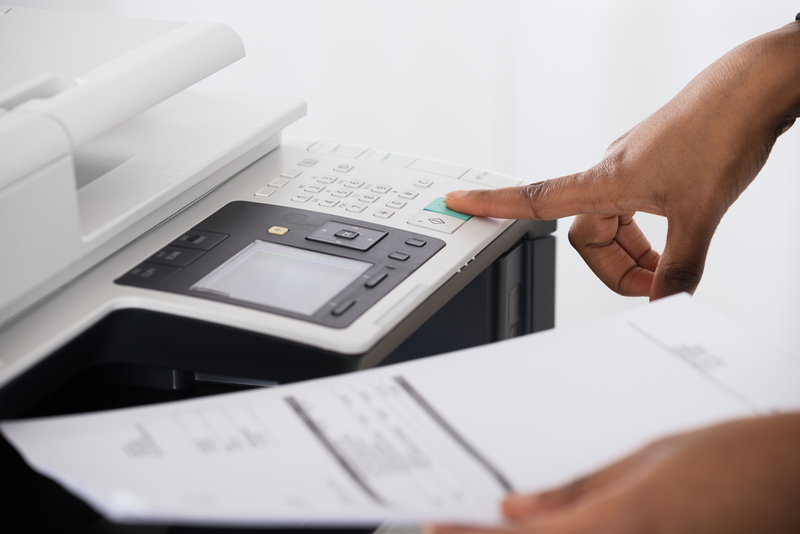Tips and Tricks for Donating or Recycling Pots and Pans
Kitchen clutter is a common problem in households everywhere. Over time, our collections of pots and pans grow, with old or mismatched sets gathering dust in cabinets or garages. Rather than letting these items go to waste, knowing how to donate or recycle your pots and pans not only helps you reclaim valuable space but also benefits the environment and those in need.
In this comprehensive guide, you'll discover practical tips and expert tricks for giving your cookware a second life--whether through donation, recycling, or creative repurposing. Get ready to transform your kitchen clutter into a meaningful contribution.

Why Recycle or Donate Your Pots and Pans?
Before tossing your old cookware in the trash, it's important to consider the environmental and social impact of your actions:
- Eco-friendly Disposal: Metal pots and pans can take hundreds of years to decompose in landfills, releasing harmful toxins in the process.
- Resource Recovery: Recycling aluminum, stainless steel, or copper helps conserve natural resources and reduce energy usage.
- Community Support: Donating usable cookware supports low-income families, community kitchens, shelters, and more.
By choosing to donate or recycle, you're making a sustainable decision--one that helps both people and the planet!
Assessing Your Cookware: Is It for Donation or Recycling?
Not all pots and pans are created equal when it comes to disposal options. The first step is to determine the condition of your cookware:
- Like-New or Gently Used: No major dents, cracks, warping, or severely scratched nonstick coatings. These are great candidates for donation.
- Heavily Used or Damaged: Broken handles, chips, excessive rust, or flaking coatings. These should be recycled or upcycled instead.
Check if all lids and accessories are included, and clean your pots and pans thoroughly before moving on to the next step. A little prep work goes a long way.
How to Donate Pots and Pans
Where Can You Donate Pots and Pans?
Many organizations and charities welcome donations of good-quality cookware. Some excellent options include:
- Local Thrift Stores: Goodwill, Salvation Army, and other secondhand shops resell gently used items to fund their programs.
- Shelters and Transitional Housing: Women's shelters, family support centers, and homeless shelters often need kitchen supplies.
- Food Pantries and Community Kitchens: Your donation can help organizations preparing meals for those in need.
- Religious Institutions: Churches, mosques, synagogues, and temples frequently organize donation drives or equip community members with essentials.
- Online Platforms: Websites like Freecycle, Craigslist, Facebook Marketplace, or Buy Nothing groups allow you to give away cookware directly to people searching for it in your neighborhood.
Donation Tips: Making the Most Impact
- Clean Thoroughly: Wash pots, pans, and lids with soap and water so they look their best.
- Bundle Sets: If you're donating a matching set, tie or tape the pieces together and label them (e.g., "3-piece saucepan set").
- Attach Lids: Secure lids with tape or recyclable twine so parts don't get separated during transport.
- Check for Restrictions: Some organizations may not accept Teflon/nonstick cookware due to safety concerns. Always call ahead.
- Include Accessories: Donating utensils, trivets, or pot holders adds extra value for the recipient.
- Get a Receipt: Donating to registered charities may qualify for a tax deduction, so keep your donation receipt for your records.
Pro Tip: Avoid donating cookware that is broken, excessively rusted, or unsafe for food use. These are best destined for recycling.
How to Recycle Pots and Pans
What Types of Cookware Can Be Recycled?
Many pots and pans are made from recyclable metals such as:
- Aluminum
- Stainless Steel
- Copper
- Cast Iron
Some cookware may have a nonstick coating (Teflon), plastic handles, or glass lids. While metals are highly recyclable, coatings and mixed elements can complicate the process. Always consult your local recycling guidelines for specifics.
Step-by-Step Guide to Recycling Old Pots and Pans
- Remove Non-Metal Parts: Use a screwdriver to detach plastic handles and glass lids where possible. These may need to be recycled separately.
- Sort by Metal Type: Check for any identification stamps (e.g., "18/10 stainless steel," "aluminum") to help with sorting at recycling centers.
- Contact Local Scrap Yards or Recycling Centers: Many municipal facilities accept metal pots and pans. Call ahead to confirm and ask about drop-off policies.
- Prepare for Drop Off: Place metal cookware in a cardboard box or reusable bag for easy transport.
- Recycling Collection Events: Check your city's website for special collection days or hazardous waste drop-off events that include cookware recycling.
Did you know? Some local appliance stores or home goods retailers offer take-back programs for cookware when you buy a new set!
Common Recycling Questions
- Can Nonstick Pans Be Recycled? Many centers accept nonstick pans after the handles are removed, but nonstick coatings aren't recyclable. If the coating is flaking, check with your local facility for guidance.
- What About Ceramic or Glass Cookware? These items rarely go in the regular recycling stream and often require specialized drop-offs. Avoid placing ceramics or glass in with metal recycling.
- Is Cast Iron Recyclable? Absolutely! Cast iron is valuable scrap metal--just make sure it's clean and free of heavy food residue.
Creative Ways to Repurpose Old Pots and Pans
If you love DIY projects or want to give your old cookware a new life at home, here are some fun and practical upcycling ideas:
- Garden Planters: Turn large pots into rustic planters for herbs or flowers.
- Bird Baths or Feeders: Hang shallow pans from trees to create a charming habitat for local wildlife.
- Tool Storage: Mount skillets to the wall for hanging small tools or garden equipment.
- Unique Wall Decor: Paint or mosaic the bottom of pans for a creative kitchen art piece.
- Candle Holders: Use mini saucepans or muffin tins as quirky votive holders.
With a bit of imagination, your old pots and pans can have a second life beyond the kitchen.
Frequently Asked Questions about Donating and Recycling Cookware
Can I put pots and pans in the curbside recycling bin?
Typically, metal cookware is not accepted in residential curbside bins due to its size and weight. Instead, bring it to a local recycling center or scrap metal facility for proper processing.
Is there a way to recycle coated or enameled pots and pans?
Some scrap yards will accept coated cookware, as they have processes to remove non-metal materials. Check ahead and always separate metal from other materials where possible.
What should I avoid donating?
Do not donate cookware with severe rust, warping, broken handles, or damaged nonstick surfaces, as these may pose safety risks. Always err on the side of caution.
Are there eco-friendly cookware take-back programs?
Yes! Some brands, like Calphalon or TerraCycle, offer mail-back recycling or trade-in deals when you purchase new cookware. Ask your favorite cookware brand about their sustainability initiatives.

Best Practices for Managing Old Cookware
- Declutter Regularly: Set an annual reminder to check your kitchenware and decide what to keep, donate, recycle, or upcycle.
- Educate Family Members: Encourage sustainable donation and recycling habits among your household for maximum impact.
- Buy Quality Over Quantity: Investing in durable, recyclable cookware minimizes future waste.
- Support Brands with Green Initiatives: Research companies that provide take-back programs or use recycled materials.
Conclusion: Make a Difference, One Pan at a Time
Donating or recycling pots and pans is a simple yet powerful way to reduce waste, support communities, and help the environment. Whether you choose to donate gently used cookware to a local charity or recycle damaged items through a scrap metal program, your action matters.
Remember to assess the condition of your pots and pans, clean them thoroughly, and always check with organizations or recycling centers for the latest guidelines. With the right approach, your old cookware can find a new home or be turned into something valuable and new--helping you declutter with a clear conscience.
Start today--turn your unused pots and pans into an opportunity for positive change!
